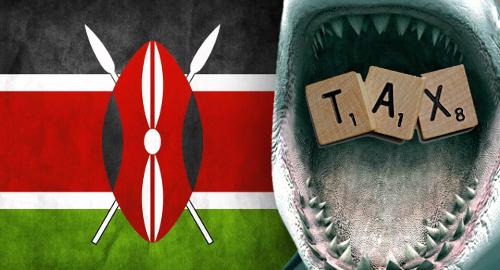 Kenya’s betting, lottery and gaming operators have been left speechless after the government proposed boosting their taxes to 50% of revenue.
Kenya’s betting, lottery and gaming operators have been left speechless after the government proposed boosting their taxes to 50% of revenue.
On Thursday, Kenya Treasury Secretary Henry Rotich unveiled his 2017-18 budget proposal, which plans to impose a uniform tax of 50% on all forms of gambling revenue. At present, betting operators pay only 7.5%, lotteries pay 5%, gaming operators pay 12% and competitions pay 15%.
Rotich told parliament that the increases were justified because gambling has “become widespread in our society in an environment that is inadequately regulated. Its expansion is beginning to have negative social effects particularly on the youths and vulnerable members of our society.” Rodich said the government will funnel the increased revenue into a new National Sports, Culture and Arts Fund.
In February, the Kenya Revenue Authority told a government committee that it had collected Sh4.7b (US $46m) in betting taxes between 2014/15 and 2015/16 but the industry’s expansion meant that the KRA expected to collect Sh3.4b in 2016/17 based on the existing rates.
Prior to the new budget’s release, Rotich said he expected Kenya’s taxman to produce an additional Sh188.5b ($1.83b) in revenue in the 2017/18 fiscal year, and it’s clear that the bulk of this requirement will come on the backs of the country’s gambling operators.
Gambling industry stakeholders have yet to respond to Rotich’s bombshell, but given that they were adamantly opposed to the much more modest tax increases called for in MP Jakoyo Midiwo’s proposed Betting, Lotteries and Gaming (Amendment) Bill 2016, it’s safe to say they’re preparing to either (a) go nuclear on the government, or (b) get the hell out of Dodge.
Midiwo reacted to the budget by warning that the government could be killing off its golden tax goose, saying “If you go too high, who will you raise the tax from if you don’t raise it from them?” Midiwo also suggested that the government will face pushback from other MPs on the tax change. “There is nothing to celebrate here. A good government cannot be in the business of driving other businesses out of business.”
Midiwo said his primary focus in pushing for new gambling legislation had been on reining in the proliferation of illegal slot machines, many of which are run by and cater to Chinese nationals. “There are too many people betting illegally. The Chinese slot machines are the problem. How I wish the government would outlaw them.”
Kenya is home to Africa’s third-largest gambling market, behind only South Africa and Nigeria. In addition to homegrown operators such as SportPesa, numerous international betting firms have put down Kenyan roots, including Betway and Dafabet, whose Kenyan site launch earlier this month marks an early frontrunner for 2017’s Bad Timing Award.